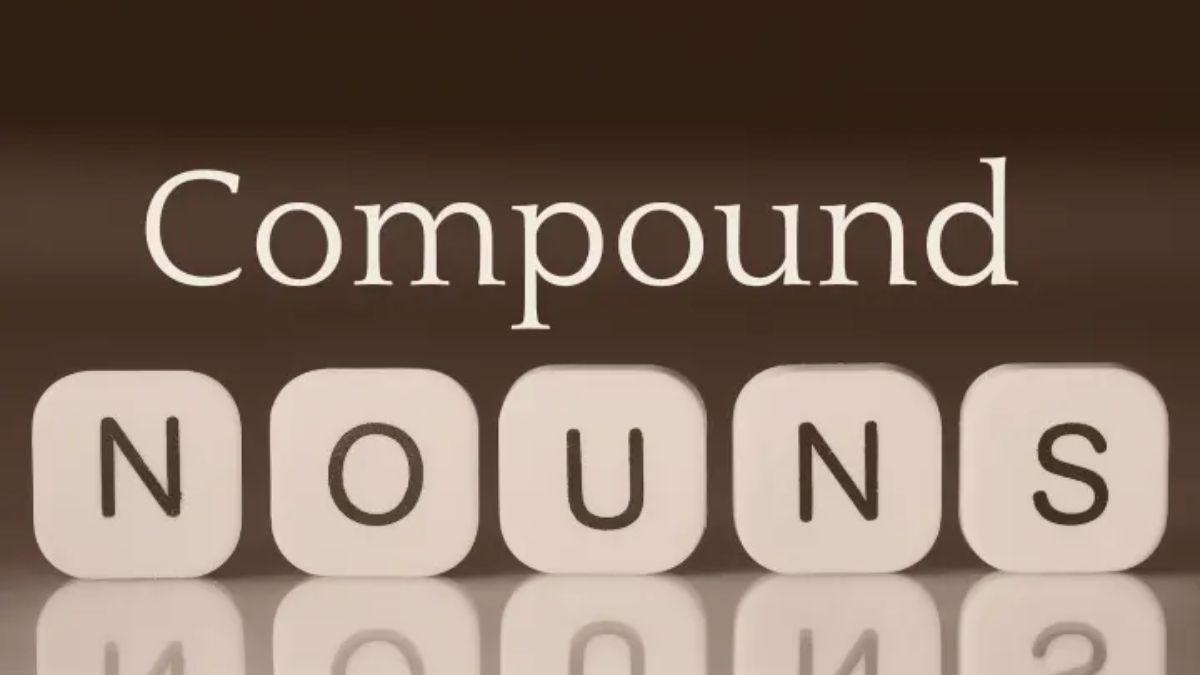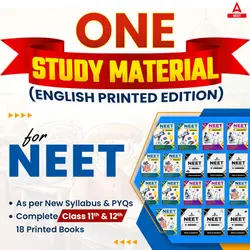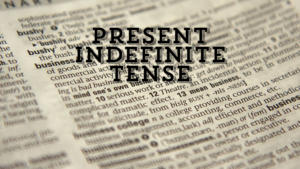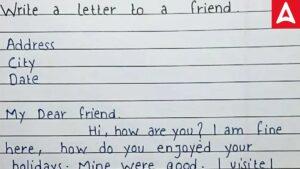Table of Contents
The Compound noun is a special type of noun that is formed when a noun or another part of speech like verb, preposition, etc., combines to form a noun. In this post, students will learn all the details regarding the compound nouns starting from its definition to examples.
Compound Nouns
A compound noun’s basic concept is straightforward at first glance. It’s a phrase made up of two or more distinct nouns combined. The use of compound nouns is a regular feature of English speech and writing. In fact, these nouns are so common in English that you might not even be aware that some of the terms you use on a daily basis are them. Just three examples include software, sunrise, and bag.
Compound Nouns Meaning
A noun that is created by combining more than one component of speech is known as a compound noun. There are three primary categories of these special nouns: closed or solid compound nouns, hyphenated compound nouns, and open or spaced compound nouns.
Compound Nouns Definition
A compound nouns is described as “a noun that is made up of two or more separate words, for example, “cake store,” “French fries,” “high-flyer,” or “schoolteacher,” according to the Cambridge Dictionary.”
The Oxford Learners’ Dictionary offers a similar definition. ‘A noun, an adjective, or a verb made of two or more words or parts of words, written as one or more words, or joined by a hyphen,’ is how it defines this noun. Travel agent, dark-haired and bathroom are all examples of this special noun.’
Compound Noun Types
There are 3 types of these special nouns in English Grammar. Check their definition and examples below.
Spaced or Open Compound Noun
A type of noun that has a space between its two constituent components is called an open or spaced compound noun.
Examples: Fast food, Cricket bat, flower store
Hyphenated Compound Nouns
A type of noun that has two words separated by a hyphen is called a hyphenated compound noun.
Example: Mother-in-law, By-product, Passer-by
Closed or solid compound Nouns
When there are no hyphens or spaces between the two words in a compound noun, it is said to be closed or solid. Typically, they are regarded as a single word.
Example: Sunflower, Rainfall, Classroom
Compound Noun Formations
The compound nouns are formed by joining the Noun with the following combinations.
| noun | + | noun | basketball, bookstore |
| noun | + | verb | snowfall, haircut |
| noun | + | adjective | lime green, town square |
| noun | + | prepositional phrase | son-in-law, lady-in-waiting |
| verb | + | noun | surfboard, swimsuit |
| preposition | + | noun | onlooker, underworld |
| verb | + | preposition | lookout, go-between |
| adjective | + | noun | black box, hot dog |
Compound Nouns List
The list of important compound nouns are given below that are frequently used.
| afterbirth | dishwasher | heartbeat | saltwater |
| aftermath | doorbell | highway | saucepan |
| aircraft | downfall | homework | sawdust |
| airfield | downpour | honeymoon | screenplay |
| airmail | drawback | horsepower | screwdriver |
| armchair | dressmaker | housework | seashell |
| armpit | driveway | jellyfish | seaweed |
| background | drugstore | jigsaw | shellfish |
| backlash | drumstick | keyboard | shoplifter |
| backlog | eardrum | kneecap | shorthand |
| backside | earphone | ladybug | shotgun |
| bandwagon | earring | leftovers | sickbed |
| bankbook | earthworm | letterhead | sideburns |
| banknote | earwig | lighthouse | sidekick |
| barman | egghead | lipstick | sidewalk |
| baseball | eyelid | loophole | silkworm |
| bathroom | eyewitness | lovebird | skullcap |
| bedspread | farmhouse | mailbox | skyscraper |
| bedtime | fatherhood | manhunt | slaughterhouse |
| billboard | feedback | mastermind | sleepwalking |
| blackbird | fingernail | middleman | snowball |
| blacklist | fingerprint | neighborhood | snowfall |
| bulldog | firearm | network | softball |
| bullfight | firefly | newsletter | songbird |
| catfish | firewood | newspaper | soundtrack |
| chairman | fishbowl | nightclub | spaceship |
| cheapskate | floodlight | nightmare | sportsman |
| checkup | footnote | notebook | spotlight |
| chopstick | footprint | outlook | stalemate |
| clockwork | freeway | overcoat | stepchild |
| clotheshorse | foretaste | overseas | stopwatch |
| clothesline | fruitcake | overtime | strongbox |
| copycat | gatecrasher | painkiller | suitcase |
| copyright | ghostwriter | pancake | summertime |
| cornerstone | godfather | paperback | sunspot |
| countdown | goldfish | passport | sweetheart |
| countryside | greenhouse | password | swordfish |
| courthouse | guidebook | penknife | tablespoon |
| courtyard | guideline | pickpocket | teardrop |
| cowboy | gunfire | pigtail | teaspoon |
| crackdown | gunpowder | pocketknife | toadstool |
| crossroad | hairdresser | quicksand | toothpick |
| cutback | handbag | racehorse | tugboat |
| daybreak | handshake | rainbow | watchdog |
| daytime | handwriting | rattlesnake | wheelchair |
| deadline | headlight | roadrunner | windpipe |
| deadlock | headquarters | runway | wiretap |
Different Types of Compound Nouns Based on Formations
The formation of the noun of compound type can take place by joining a noun with another noun, adjective, verb, preposition, etc. We have provided some formation types along with their examples below.
Noun + Noun
| Noun | Noun | Example |
| Bus | Stop | Bus stop |
| Foot | Ball | Football |
| Air | Port | Airport |
| Basket | Ball | Basketball |
| Railway | Station | Railway station |
Noun + Verb
| Noun | Verb | Example |
| Sun | Rise | Sunrise |
| Sun | Set | Sunset |
| Foot | Footprint | |
| Snow | Fall | Snowfall |
| Rain | Fall | Rainfall |
Preposition + Noun
| Preposition | Noun | Example |
| Under | Line | Underline |
| Under | Ground | Underground |
| Off | Shore | Offshore |
| Up | Stairs | Upstairs |
| Over | Night | Overnight |
Adjective + Noun
| Adjective | Noun | Example |
| Black | Board | Blackboard |
| White | Board | Whiteboard |
| Hard | Ware | Hardware |
| Hot | Spot | Hotspot |
| Soft | Ware | Software |
Noun + Gerund
| Noun Example | Noun | Gerund |
| Birdwatching | Bird | Watching |
| Handwriting | Hand | Writing |
| Sightseeing | Sight | Seeing |
| Bookkeeping | Book | Keeping |
| Ballet dancing | Ballet | Dancing |
| Time consuming | Time | Consuming |
| River rafting | River | Rafting |
| Mountain climbing | Mountain | Climbing |
| Cat walking | Cat | Walking |
Compound Noun Examples and Exercises
- Compound nouns can be created in a few distinct ways. Sometimes, two words are just squashed together. Examples of these so-called closed nouns are given below:
- playground
- windshield
- Keyboard
- A hyphen connects other nouns together in a tidy manner. These are called hyphenated compound nouns, and examples include:
- father-in-law
- X-ray
- Merry-go-round
- Then there are special category of nouns with no connections at all. These are referred to as open compound nouns, and some examples are as follows:
- trash can
- garden gnome
- peanut butter
- We frequently experience uncertainty while constructing the possessive case of a composite noun. Where should the apostrophe be placed? The compound noun is always completed with an apostrophe (‘s’).
- Stepson’s
- Kickboxer’s
- Father-in-law’s
- The suffix -s is combined with the root word or base word to create plural compound nouns. The term in this noun known as the “root word” is the most important and provides these nouns with its meaning.
- Stepdaughters
- Airports
- Maidservants
Compound Noun Examples in Sentences Key Points
- These nouns are special category nouns made up of two or more words together.
- Examples include haircuts, waiting lists, sister-in-laws, the underground, and windsurfing.
- The general class to which the composite noun belongs is implied by one of the two words. Within that class, the other states its kind.
- A noun, an adjective, a verb, or a preposition can be combined with another noun to form this unique type of noun.
- These nouns can be made plural by adding the suffix -s to the base or root word. For instance, in-law sisters, swimming pools, cookbooks, etc.
- These nouns are given the possessive case by inserting an apostrophe (‘s’) at the end. For instance, the Spider-Man, Policeman, or sister-in- law’s.
| Related Articles | |
| Common Nouns | Singular Nouns |
| Collective Nouns | Proper Nouns |
| Plural Nouns | Abstract Nouns |



 Present Indefinite Tense: Formula, Exerc...
Present Indefinite Tense: Formula, Exerc...
 Email Writing Format for Class 10- Check...
Email Writing Format for Class 10- Check...
 Letter Writing in English, Types, Tips, ...
Letter Writing in English, Types, Tips, ...





























